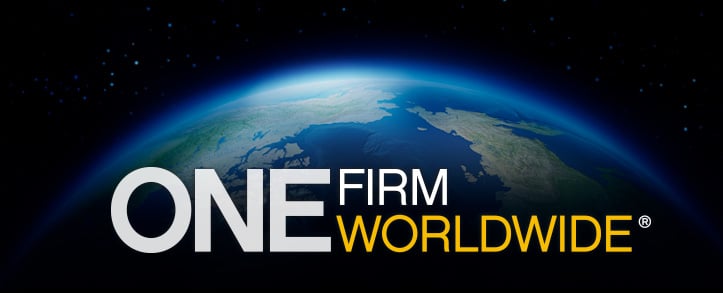
欧盟就中国市场经济地位的困境(英文版)
The European Union must make a call on what could be one of its most significant policy decisions in the coming years. Whereas the Transatlantic Trade and Investment Partnership negotiations with the United States have caught the public's eye, EU trade policymakers appear to be more preoccupied with a far more pressing issue—whether the European Union will grant China market economy status by the end of 2016.
Until recently, this mundane but controversial topic was a subject of debate reserved for trade lawyers and policymakers. However, it has now come to the forefront and even sparked unforeseen protests of thousands of steel workers and employers in Brussels in mid-February 2016. The manner in which the issue will be resolved is likely to have a significant effect on EU and Chinese industry. Granting China market economy status is likely to result in cheaper Chinese imports into the European Union. This could be detrimental to certain EU industries competing with Chinese imports but positive for other EU industries that source their inputs and intermediate goods from China.
China's Protocol of Accession to WTO
The origin of this debate lies in China's negotiations to join the World Trade Organisation ("WTO") and, in particular, a deal that it struck primarily with the United States and the European Union. In its protocol of accession to the WTO, China allowed other WTO members to consider it a nonmarket economy country for the purpose of antidumping investigations. Hidden in a small subparagraph of the protocol, this provision was going to have a significant impact on Chinese exports to other WTO members.
The practical result of China being treated as a nonmarket economy is that antidumping duties on its exports are usually significantly higher than those that would be imposed if it were to be treated as a market economy. Antidumping measures generally impose duties on imported products that are deemed to be dumped and cause injury to the domestic industry producing the products in question in the importing country. Dumping generally occurs when goods are exported for less than their selling price in the home market, third-country markets, or below a theoretical domestic price based on costs and a profit that is deemed reasonable. However, in the case of nonmarket economies, the European Union disregards domestic costs and replaces them with costs of a producer in another country where costs are usually higher than in China. This results in higher duties.
The vast majority of EU antidumping measures are imposed on Chinese products. Should China be granted market economy status, it is widely accepted that it will become far more difficult to impose such measures on China. Further, in the cases where measures will be able to be imposed, they are likely to be far lower than existing measures.
The problem lies in the poorly drafted expiry clause of the nonmarket economy provision of China's protocol of accession. The only clear element in this provision is that "something" should change 15 years from China's accession to the WTO on December 11, 2016. The crucial question is: what should change?
China's interpretation is that, according to the expiry clause, the right of other WTO members to consider China as a nonmarket economy country will expire on December 11, 2016. China is not alone in its interpretation, as several commentators, and even the European Commission's internal legal service, agree with it. Only a few years ago, this position was undisputed in the European Union, to the extent that past EU Trade Commissioner Karel De Gucht had no problems in openly declaring in the European Parliament that "in 2016 China will receive market economy status."
However, the United States, supported by other commentators and several EU Member States, considers that the right of WTO members to keep considering China a nonmarket economy will not automatically lapse. WTO members would retain the right to grant market economy status to China only if and when they consider that China meets the relevant conditions. According to this interpretation, the expiry clause concerns only certain aspects of the nonmarket economy methodology applicable to China, not China's nonmarket economy status itself. The United States has consistently urged the European Union not to grant China market economy status, with a bipartisan group of 18 senators having recently sent a letter to the current EU trade Commissioner, urging her not to grant market economy status to China. In addition, the European Parliament adopted a nonbinding resolution in May 2016, proclaiming that China should not be granted market economy status. This, together with increasing opposition from EU Member States and European industry, is reducing China's chances of being automatically granted market economy status by the European Union.
EU Options
Reportedly, approximately 80 to 90 countries have granted China market economy status. These include WTO members such as Australia, Brazil, New Zealand, Russia, Singapore, and Switzerland. China and the European Union will either work together to find a mutually satisfactory solution or will both end up with a WTO dispute, the outcome of which will provide a definitive answer.
If the European Union does not grant market economy status, China is likely to bring the matter before the WTO. Thus, the final answer as to whether this approach complies with WTO law will come from the WTO dispute settlement mechanism. The European Union could try to avoid a WTO decision on this matter by granting market economy status to China, accompanied with negotiated solutions concerning trade defense for key industries (e.g., steel, ceramics, or chemicals). There are valid examples of negotiated solutions (e.g., the 2014 deal) where the European Union and China reached an agreement that led to the European Union dropping a possible trade defense investigation against Chinese telecoms equipment. But is a negotiated solution on this issue still possible at this stage?
In deciding whether to grant market economy status to China, the European Commission will not be the only player. The European Union will have to amend its antidumping legislation, and this will require the approval of the European Parliament and Council. In light of recent strong opposition from the European Parliament and EU Member States, approval for automatically granting China market economy status appears unlikely. Nevertheless, most political groups in the European Parliament also consider that the European Union should comply with its WTO obligations, while simultaneously safeguarding the European Union's ability to impose effective trade defense measures. Consequently, even if the Commission decides to propose market economy status for China, the final outcome remains uncertain.
The EU institutions have yet to reach a common position and will further assess the effect of granting market economy status to China. To this end, the Commission launched a public consultation on "whether, and if so, how, the EU should change the treatment of China in its antidumping investigations after December 2016." Together with the consultation, the Commission published an analytical information note and an inception impact assessment. Both of these outline what the Commission considers the three possible options to be:
- Leaving EU legislation unchanged;
- Changing the antidumping methodology for trade defense investigations against China with no mitigating measures; or
- Changing the antidumping methodology for China as part of a package including mitigating measures.
Unfortunately for the Commission, certain Member States traditionally in favor of imposing trade defense measures (e.g., France and Poland) have already rejected all three options. In particular, they want the Commission to come up with an alternative approach with respect to effective mitigating measures. The currently proposed mitigating measures also met strong opposition from other Member States that are traditionally more skeptical about trade defense measures (e.g., the United Kingdom and Sweden) and have resulted in a deadlock in the Council. As one of the representatives of one of the free trade-oriented EU Member States put it, "we rather see a situation whereby China is not granted market economy status, even if this is contrary to WTO law, if the alternative would be to mess up the entire instrument."
The Commission has delayed making a proposal on Chinese market economy status, and it is currently set to present the proposal by the end of July 2016. The most recent idea that is circulating is that China would be granted market economy status, but that the EU industry could, on a case-by-case basis, challenge this finding in individual investigations, essentially reversing the burden of proof.
Comment
The issue is being debated heavily between European institutions and the different EU Member States, with significant lobbying from European industries. The best solution would be to reach a mutually satisfactory agreement, a win–win solution according to which the European Union grants market economy status to China but secures adequate long-term protection for its key industries. The latest developments are that on July 12–13, 2016, the EU and China held their annual bilateral EU–China summit in Beijing, where the issue was discussed. In the context of the summit, EU business leaders have continued their calls not to grant China market economy status, arguing that it would make the EU look weak. However, the EU and China have agreed to create a bilateral steel "platform," intended to curb Chinese excess steel capacity. The Commission directly linked the creation of this platform to China's market economy status, but regardless of any progress made in a negotiation, the question remains as to whether granting market economy status will be eventually acceptable for the European Parliament and EU Member States
The likely outcome is that the European Union will be unable to reach a common position internally and will not grant market economy status to China. China will then resort to the WTO, which will put an end to this dispute. If so, nobody in the European Union will have to take responsibility for having granted market economy status to China. One party will officially win, and the other will officially lose. In reality, both parties will have wasted time and resources, which could have been used to reach a constructive and mutually satisfactory agreement.
A previous version of this Commentary was published in the International Law Office's International Trade newsletter.

